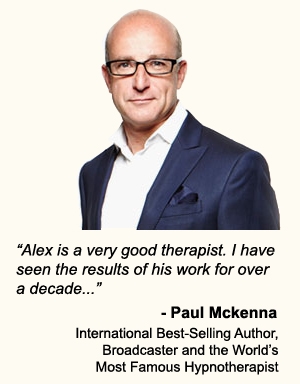 IF YOU’RE AFRAID TO FLY this probably isn’t the first time you’ve looked around for a fear of flying course. So if you have tried other courses and been disappointed you might be wondering what makes us different?
IF YOU’RE AFRAID TO FLY this probably isn’t the first time you’ve looked around for a fear of flying course. So if you have tried other courses and been disappointed you might be wondering what makes us different?
It’s a good question, and the answer is simple: our UK fear of flying course was created by therapists, not pilots.
And NOT an airline.
Our fear of flying courses were developed by therapists here at The Phobiaman Clinic in Harley Street. The Phobiaman Clinic is Harley Street’s leading Phobia Treatment Centre.
The PHOBIAMAN Clinic has helped over 15,000 people overcome their phobias, and people like you to fly with confidence. And the best part is we developed our unique programme to treat phobias and anxiety without using exposure therapy.
In fact, we are the UK’s leading specialist Phobia Treatment Clinic, and we understand how to treat a fear of flying better than anyone.
We achieved this status because 20 years ago we decided to specialise in treating phobias, and nothing else. And that’s rarer than you might think. Most people treating phobias are NOT specialists.
Welcome to the PHOBIAMAN Clinic… and the Best Fear of Flying Courses in the UK.

I’m Alex, veteran member of Paul Mckenna’s Training Team and Treatment Director here at The PHOBIAMAN Clinic.
I am a clinical specialist in the treatment of fear of flying with Eriksonian hypnosis and NLP. Over the last 20 years I have put together a team of some of the best phobia hypnotherapists anywhere.
Together, we have developed our programme for fear of flying, which we use here in the clinic. And we refined these methods over tens of thousands of clinical hours spent working with people with phobias, just like you. This has led to our world-wide reputation for excellence.
What makes our programme so unique? It’s unique because it’s been designed to remove the fear without you having to face it, and that means no nasty exposure therapy. Our Fear of Flying Course uses exactly the same tried and tested methods we use in the Clinic.
We are professional, full-time phobia therapists and we may be able to help you overcome your fear in just two days if you’ll only allow us to. That may sound like a wild claim right now, but when you stop to consider that we have already helped over 15000 other people, hopefully it begins to sound a bit more real. And in the clinic we achieve this outcome in half that time with most patients.
Comparison: Fear of Flying Course with Flight vs Fear of Flying Treatment in Harley Street.
We created our fear of flying courses for patients who wanted the best treatment available, but didn’t have time to attend multiple hypnotherapy for fear of flying appointments at the clinic during the working week.
Our UK fear of flying confidence courses are run over a single weekend, and they allow you to experience the same outstanding treatment you would get in Harley Street. Most patients in Harley Street get about 8 hours of treatment. So you get almost double this on the Fear of Flying Course.

Another benefit of the Fear of Flying Course is the short flight on the last day. With the same premium level of service our patients have come to expect, our experience flight is on a Luxury Private Jet. And yes, there is champagne to celebrate, for those who like it. And yes, you can take photographs!
As our courses are small we can ensure each participant receives the attention they need.
Fear of Flying Course London – Real Results
Others measure their success by how many people take a flight at the end of the course or treatment. But thousands of people fly every day despite having a fear of flying because they have to. So this doesn’t mean the phobia has gone.

We only consider ourselves successful when your fear has gone completely and you have the confidence to do what someone without a phobia would normally be able to do without experiencing a fear reaction.*
And even with these higher benchmarks, our success rates are better than the airline courses, as well as other clinics and therapists, because we specialise in phobia treatment and we have a unique understanding of fear of flying and an outstanding programme delivered by some of the best phobia therapists in the world.
Our Afraid of Flying Courses are NOT About Logic
People who have never had a phobia say you are far more likely to die on the way to the airport than you are by flying. That’s true, but it doesn’t help, does it?
At the PHOBIAMAN Clinic, we know that this sort of logic won’t conquer the anxiety and stress of a flying phobia. And the fact that pilots and cabin crew sometimes develop a fear of flying is proof it has nothing to do with safety or logic or knowing how aeroplanes fly.
It is also proof that there is nothing wrong with you if you do have a flying phobia. It’s just the way the brain works.
Pilots are as human as the rest of us and sometimes develop anxieties and fear of flying even after thousands of perfect flights. And when they do they come to The PHOBIAMAN Clinic for treatment, and there is no better recommendation than that.
Experience Flights from London Heathrow and London Gatwick
People come from all over the UK for our London Fear of Flying Courses. And with our world-wide reputation, some people even come from overseas.
The full courses are held at a 4 star hotel just off the M25, with ample parking and a railway station less than a mile away. The short flight at the end of the course is arranged from either London Heathrow or London Gatwick.
Fear of Flying Courses Near Me
As international travel recovers, we are planning to roll-out our fear of flying courses across the UK and even to other parts of the world:
- March 2023 – Fear of Flying Course Manchester
- April 2023 – Fear of Flying Course Birmingham
- March 2024 Fear of Flying Course Monaco (Nice) Europe
- May 2024 Fear of flying Course Dubai Middle East
Why Do People Choose Our Fear of Flying Courses?
What We Never Do…
1. No Long Physics Lectures
We all know logically that flying is safe. But the fear has nothing to do with flight safety or logic, knowledge or understanding, because it comes from a completely different part of the brain.
So we don’t force you to sit among hundreds of other fearful fliers for a whole day, getting more and more nervous while you listen to a pilot talking about aircraft and aviation safety statistics, how a commercial passenger jet is the safest form of transport, and how aeroplanes fly.
The reason we don’t do this is because it doesn’t work. And we think asking a pilot to cure a fear of flying is as silly as asking a therapist to fly an aeroplane, (and the pilots we’ve spoken to agree with us). Overcoming fear of flying is about the brain, not the plane.
2. No Nasty Exposure Therapy (“Facing Your Fear to Beat The Fear”)
If you’ve ever been on an airline fear of flying course you’ll know that most of the people on the flight at the end are still terrified, some people are close to a panic attack. They haven’t overcome their fear of flying at all, even after a whole day (sometimes two days!) of learning about flying.
They are “Facing their Fears” in order to conquer them. Some of them are in tears they are so frightened. You can see it in the promotional videos on the airline websites.
These brave people have our full respect but this is the old psychological model of how to overcome fear – “Feel the fear and do it anyway”. It’s called exposure therapy, or systematic desensitization, and it isn’t very nice.
There is no face your fear with our treatment. We invest the time needed with you and we only use the very best positive psychological techniques to remove your fear without you having to face it.*
What Makes Us Different?
3. We are Phobia Treatment Specialists
It’s important to make sure you are putting your trust in a specialist phobia clinic for your phobia treatment. Luckily, here at The PHOBIAMAN Clinic we specialise in treating phobias, so we understand what it’s like to have a real fear.
And we know that fear of flying is often underpinned by other fears like claustrophobia or fear of heights. This means a fear of flying won’t always respond to the out-of-the-box phobia methods and relaxation techniques that the airline courses and non-specialist clinics rely on.
If you want to check if a clinic or therapist GENUINELY specialises in phobia treatment, just have a quick look at their websites. If they offer treatments to stop smoking or weight loss or coaching or anything else then they do NOT specialise in phobias. And if they don’t specialise they are less likely to have the experience or expertise necessary to treat your phobia.
4. World Class NLP and Hypnosis
Not only are we phobia specialists, we are also world-class experts in Eriksonian Hypnotherapy and Neuro Linguistic Programming (NLP). We don’t say this lightly, either.
As veteran members of Paul Mckenna’s training team, we help Paul and Dr Richard Bandler (the man who thought it all up) to deliver the largest NLP trainings in the world. Some of us have spent more than 10 years helping to deliver these trainings to tens of thousands of other hypnotherapists. That’s over 80 seminars, working alongside Paul Mckenna and Richard Bandler. There is no team with more experience anywhere, and all this means we deliver the most powerful and thorough fear of flying hypnotherapy treatment programme anywhere.
5. You’re in Control throughout
Our whole programme is designed to collapse your fear at a neurological level and ONLY THEN do you get to test the new you, when you say you’re ready. You are fully in control of the process.
6. We Are the First Choice of Pilots and Cabin Crew
 When livelihoods and careers depend upon results, professional pilots and cabin crew come to us.
When livelihoods and careers depend upon results, professional pilots and cabin crew come to us.
They turn to The PHOBIAMAN Clinic because they know we are as thorough about looking after our clients and collapsing phobias as they are about flying aircraft and taking care of their passengers. We take it extremely seriously.*
Captain Chelsea “Sully” Sullenberger, the pilot who landed on the Hudson river, saving hundreds of lives, puts his recovery down the the mental heath specialists he saw in the weeks following the event. You can read his advice for anxious flyers here.
7. We Know More About How to Treat Flying Phobias Than Anyone Else
Having worked with over 9000 people with phobias of all kinds, we understand better than anyone ALL the different components that can make up a flying phobia: (take-off, landing, fear of heights, falling out of the sky, fear of being sick (emetophobia), Loss of Control, Structural Integrity of the Aeroplane, Engine Failure, Crew Competence, Weather Conditions, Turbulence, Terrorism, Claustrophobia, Panic Attacks, Mental Images, etc.). You name it, we’ve treated it, and we know how to collapse each one thoroughly.
8. Our Methods Work Where Others Fail
“I’ve tried everything and you’re my last hope!” – We used to hear that a lot.
We don’t hear it so much now, thankfully, because people come straight to us. But if you have tried other therapists or airline industry courses, don’t worry. You deserve a fear-free life and we’re confident we can help.*
Just call our friendly team on 0207 193 5194 and they will answer your questions and explain what may be possible for you. If you are calling from outside the UK the international number is +44 207 193 5194.
You can also contact us using the form on this page and one of us will get back to you straight away.
- azic

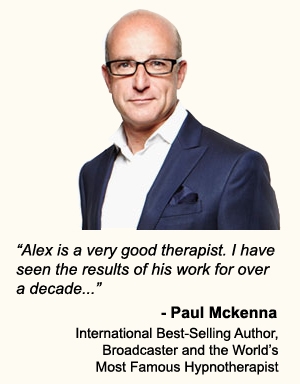


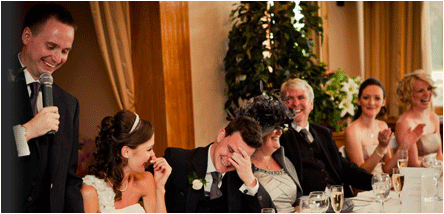


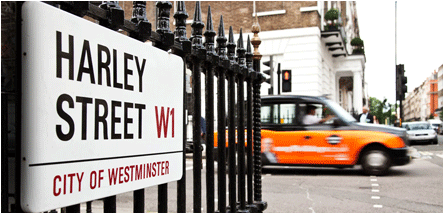

 IF YOU’RE AFRAID TO FLY this probably isn’t the first time you’ve looked around for a fear of flying course. So if you have tried other courses and been disappointed you might be wondering what makes us different?
IF YOU’RE AFRAID TO FLY this probably isn’t the first time you’ve looked around for a fear of flying course. So if you have tried other courses and been disappointed you might be wondering what makes us different?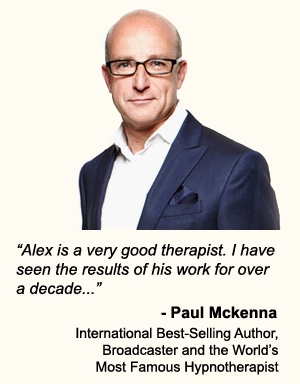


 When livelihoods and careers depend upon results, professional pilots and cabin crew come to us.
When livelihoods and careers depend upon results, professional pilots and cabin crew come to us.




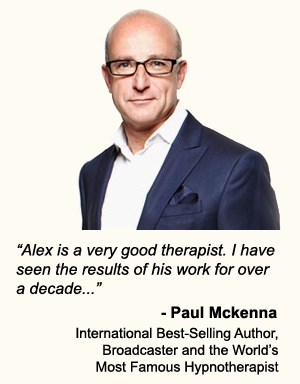 The area is the oldest and most prestigious, dedicated private healthcare district in the world. It was featured recently in a 3-part BBC television series called
The area is the oldest and most prestigious, dedicated private healthcare district in the world. It was featured recently in a 3-part BBC television series called 
 There is something special about coming to Harley Street for treatment. Maybe it’s the centuries of healing excellence that have taken place here. Or perhaps it’s just knowing you are getting the best possible treatment available today. Maybe it’s both.
There is something special about coming to Harley Street for treatment. Maybe it’s the centuries of healing excellence that have taken place here. Or perhaps it’s just knowing you are getting the best possible treatment available today. Maybe it’s both. IF YOU’RE LOOKING FOR HYPNOTHERAPY FOR PUBLIC SPEAKING you probably already know that preparation is NOT the key to making the fear go away.
IF YOU’RE LOOKING FOR HYPNOTHERAPY FOR PUBLIC SPEAKING you probably already know that preparation is NOT the key to making the fear go away.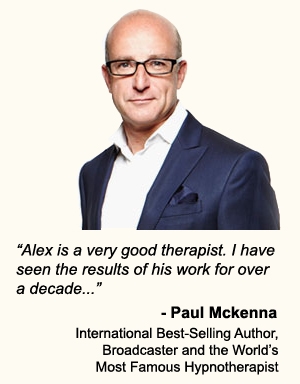


 IF YOU’RE LOOKING FOR HYPNOTHERAPY FOR FEAR OF HEIGHTS you’ve probably already tried facing the fear and discovered it’s NOT a very effective form of treatment.
IF YOU’RE LOOKING FOR HYPNOTHERAPY FOR FEAR OF HEIGHTS you’ve probably already tried facing the fear and discovered it’s NOT a very effective form of treatment.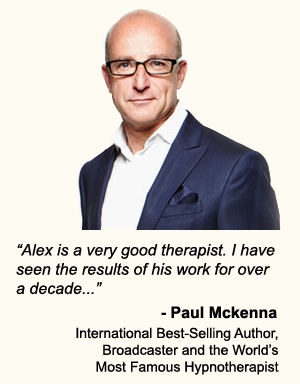


 IF YOU’RE LOOKING FOR HYPNOTHERAPY FOR FEAR OF FLYING you probably already know that ‘facing the fear’ just doesn’t work.
IF YOU’RE LOOKING FOR HYPNOTHERAPY FOR FEAR OF FLYING you probably already know that ‘facing the fear’ just doesn’t work.